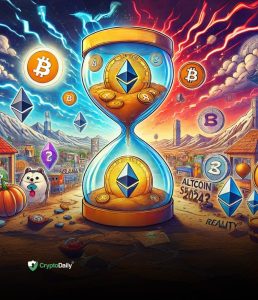Designed in 2017 by the founder of messaging service Telegram, Pavel Durov, the Ton blockchain has had several problems, which have stalled its rise, following its successful launch in 2018, along with its cryptocurrency Gram.
What happened to the TON blockchain
Designed with the mischievous aim of being by far the most widely used blockchain due to its low costs and speed of transactions, TON had a very promising start by managing to raise almost $1.7 billion from investors, through an initial coin offering.
But then came the cold shower from the US Securities and Exchange Commission, which blocked the sale of the coins in October 2019 due to the lack of necessary approvals.
After nine months of court litigation, Telegram decided to abandon the project and settled with the SEC, paying an $18.5 million fine.
But last month, Durov himself announced that the project had actually remained standing thanks to the large community that has been following him since 2018 and was participating in the development of the blockchain, which had meanwhile changed its name to Toncoin.
He announced:
“After four years of blood, sweat, tears and active development by some of the brightest engineering talent in the world, we are finally on the cusp of something big. Something that has eluded everyone else, even though they have achieved incalculable heights, successes and trillion-dollar valuations. Mass adoption”.

Toncoin and Ton Crystal
The community is said to be made up of around 1 million people who believed in the project of Telegram’s founder from the outset and continued to grow, even after the sale of the token was blocked by the SEC.
Currently, alongside Ton, the cryptocurrency directly linked to the initial project, there is also another listed cryptocurrency that takes up only the name of the project, Ton Crystal, launched in 2020 by TON Labs.
Fedor Skuratov, former head of communications at TON Labs, believes that the association with Telegram’s original TON project could actually be detrimental precisely because of the project’s legal history:
“The very name of TON has become a negative factor for many potential partners, investors, banks and regulators. Free TON has already been affected, and other projects will be as well”.
According to the community now the next steps will be the launch of TON’s DNS service, a key ingredient that will allow users to navigate its blockchain more easily.
And that is why according to many experts, 2022 will be the year of the definitive consecration of this blockchain that should surprise for its speed and scalability.
The post Anticipation grows for the Ton blockchain appeared first on The Cryptonomist.





















